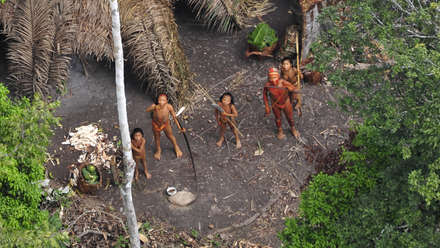bcspace wrote:BCSpace actually spoke the truth here. Every animal ever born was the same species as its parents. Only after sufficient genetic divergence in the lineage, as compared from one point in a given lineage to some other point later on down the lineage, do we impose the arbitrary definition of a species.
Thank you but I don't think the definition of species is arbitrary at all. One of the boundaries between species is breeding and a species is a group of organisms that are capable of breeding with each other. The primer I gave did illustrate this.
But breeding ability isn't a binary proposition. It's more like a probability continuum. Even among human beings, some pairings are going to be more fertile than others.
If you take a given species and split it into two separate populations, as these populations diverge genetically, it will probably not be the case that animals from these two species were 100% capable of breeding, and then in the next generation that dropped to 0%. The ability to breed will probably diminish over time as more and more changes accumulate that reduce the compatibility between species. Even after the two species are distinct enough that taxonomers might call them different species, that doesn't necessarily mean the probability of a successful breeding between animals from those species has hit 0.0%.
Anyhow, look at the liger, the mule, and so forth. Sure, these particular pairings happen not to result in young that are fertile, but they do demonstrate that breeding between species is not a simple ON|OFF, binary thing.
Mormonism ceased being a compelling topic for me when I finally came to terms with its transformation from a personality cult into a combination of a real estate company, a SuperPac, and Westboro Baptist Church. - Kishkumen
